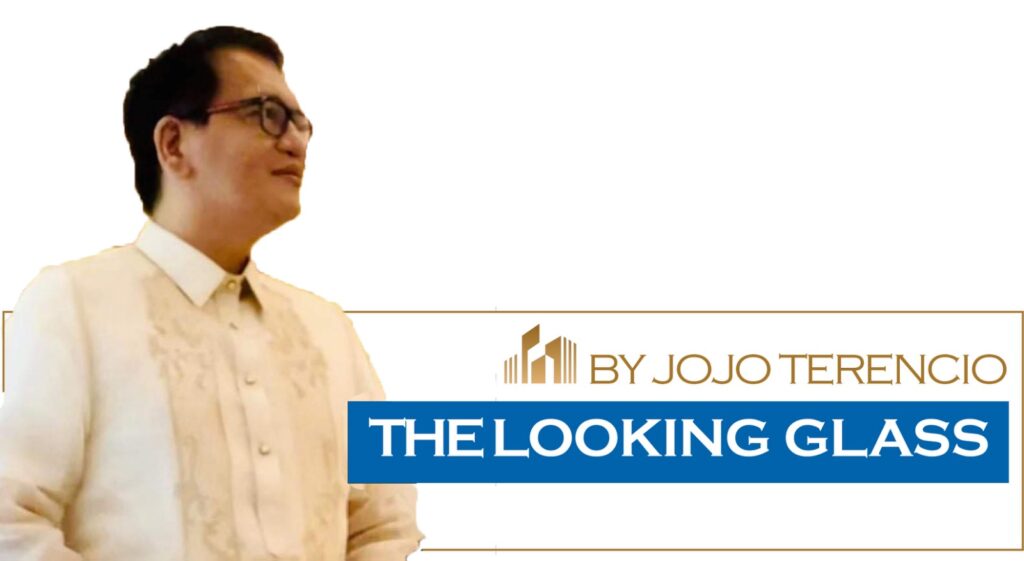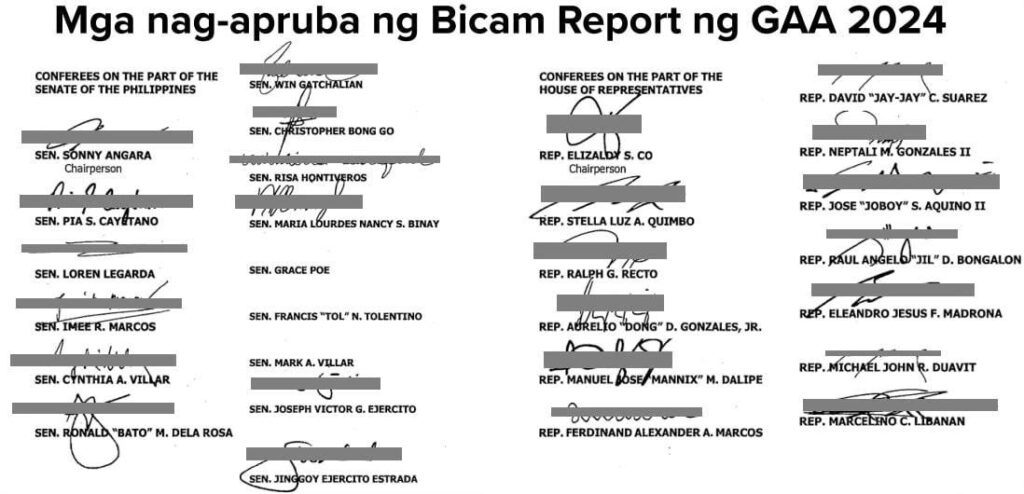Public service is a privilege, and constitutionally, a Public Trust – one bestowed upon individuals elected to represent their fellow citizens. Yet, this privilege is accompanied by an immense responsibility, especially for Filipino politicians who must never lose sight of their fundamental role as humble servants of the people. Unfortunately, in contemporary political landscapes, we often witness a hallmark of disillusionment as a growing number of elected officials transform their positions into instruments of power, betraying the trust and expectations of those they are meant to serve. These individuals must return to the core principle that their authority is a borrowed trust from the citizens who placed them in office. The reality is that the authority wielded by politicians is not inherently theirs; instead, it is a reflection of the collective will of the people. The citizens have invested their faith and future in their leaders, expecting them to uphold the tenets of good governance, transparency, and accountability.
Every action taken and decision made within the corridors of power must reaffirm the realization that it is the people’s money and aspirations that they are tasked with managing. To sincerely fulfill their role as public servants, politicians must first acknowledge their responsibility as stewards of the nation’s resources. Taxes extracted from the hard work and labor of the Filipino people fund government projects and salaries. We must never forget the tales of resilience that define the Filipino spirit: the enduring MMDA traffic enforcer who braves the sweltering heat or torrential downpours to keep our streets orderly; the overseas Filipino worker who sacrifices the comfort of home to provide for their families while often enduring grueling conditions abroad; and the dedicated Shopee live vendor who employs creativity and charisma in a bid to make a daily living, often with the hopes of bettering their circumstances. Every sustenance they provide, every service they perform, every output they generate contributes to the pool of taxes that sustains the very foundations of public service. Therefore, politicians must ensure that these resources are utilized wisely, judiciously, and transparently.
It is unacceptable for the fruits of the hard work of Filipinos to be squandered on ostentatious luxuries or to serve the narrow ambitions of those in power who, bereft of humility, seek only to fill their lives with designer handbags or elaborate retreats. At the heart of public service must be a deep-seated commitment to humility. Elected office should never be perceived as a throne from which to govern with an iron fist, but rather as a ministry to serve the community with compassion and empathy. Yet, strikingly high numbers of politicians fall into the pitfalls of entitlement upon assuming their roles. They cocoon themselves with layers of privilege, insulating themselves from the struggles of the very constituents they promised to serve. By fostering a “cordon sanitaire” of privilege, they alienate themselves from the realities of their constituents, favoring extravagant events that often distance them from the people they represent. The moment power settles into their psyche, often they become intoxicated by their status, forgetting that leadership is not an exalted position but a duty. True leadership does not lie in the number of people a politician can command but rather in their capacity to uplift those who are most vulnerable within society.
The very essence of politics is rooted in solving problems, championing the oppressed, and ensuring that all citizens have a voice. In light of this responsibility, we must advocate for a renewed commitment among our elected officials, a call toward humility that must govern their actions and decisions at all times. Every politician must remind themselves that they were not elevated to power to indulge in the trappings of affluence but to shoulder the burdens of an entire populace. They must navigate their roles with consideration for the myriad souls who look up to them for guidance, sanctuary, and representation.
Further, transparency must become a non-negotiable aspect of governance. The lack of accountability serves only to erode the trust that the public has placed in its leaders. Elected officials must adopt an open approach, allowing the citizenry to scrutinize their actions and the results of their decisions. They should commit to clear communication about how public funds are spent, the rationale behind their policies, and the outcomes that these policies are designed to produce. Citizens are entitled to understand and critique how their tax money is utilized, paving the way for greater civic engagement and responsibility.
Moreover, engaging with the community should become a central tenet of every politician’s commitment. Rather than conducting affairs in the confines of exclusive gatherings, politicians should prioritize outreach initiatives that allow citizens to voice their concerns directly. Listening tours, town hall meetings, and open forums can create spaces where people feel empowered to share their thoughts, aspirations, and grievances. This fosters a culture of accessibility that is invaluable in bridging the gap between elected officials and their constituents. The rhetoric surrounding public service must shift from one of governance to stewardship. Politicians must act as custodians of the collective dreams and hopes of their constituents. They must yield to the will of the people, ensuring that their decisions resonate with the aspirations and needs of the public rather than their personal gains. This stewardship manifests through active involvement in community programs, initiatives aimed at improving the lives of citizens, and policies that prioritize the common good over political expediency.
Developing a culture of service requires politicians to co-create solutions with the communities they represent. This collaborative spirit ensures that their policies are grounded in reality, tailored not just to meet bureaucratic expectations but also to address the actual struggles of the populace. The voices of the marginalized must be amplified through deliberate inclusivity in decision-making processes. This approach honors the trust bestowed upon them and solidifies a bond between the officials and their constituents — a bond built on shared understanding and mutual respect. Furthermore, politicians must invest emotionally and intellectually in the issues faced by their constituents. Empathy should drive their motivations, compelling them to action whenever they see injustice or inequality. They must step outside their comfort zones to meet people where they are and to understand their sentiments deeply. By engaging emotionally, they can craft more effective policies that reflect the true dynamism of Filipino society. Moreover, a commitment to education and learning is essential in fostering effective governance. Politicians should actively seek knowledge about the systems they oversee, whether it be economic policies, healthcare initiatives, or infrastructure development. This continual pursuit of knowledge empowers them to make informed decisions that can lead to genuine progress. Staying educated about the concerns of the citizens is not just an act of good governance; it serves as an important reminder of their accountability to the public. Ultimately, a return to humility, transparency, empathy, and active community engagement would require a paradigm shift in how Filipino politicians approach their mandate. Rooting their service in these principles ensures that they are better equipped to face the inherent complexities of governance today. As stewards of the people’s interests, they possess a unique opportunity to shape the country’s future in a manner that uplifts every citizen, particularly the underprivileged and marginalized
The journey toward better governance must not be an isolated endeavor. It asks us, as citizens, to hold our leaders accountable and demand better. This accountability must be reciprocal: while we expect our politicians to serve with integrity, we must also fulfill our role in engaging with the political process. By participating in free elections, community consultations, and discussions surrounding policy, we ensure that our voices remain relevant in the governance narrative. An empowered citizenry that advocates for genuine public service will inevitably lead to better governance, where officials recognize their positions as sacred trusts requiring diligent stewardship. Moving forward, we should embody the spirit of progress and resilience that defines the Filipino identity. It is our collective responsibility to encourage leaders who are not only dedicated to their roles but are also unwaveringly committed to serving the public good. The hope for a more equitable society rests on the shoulders of both politicians who act with purpose and citizens who actively engage in their political landscape.
In conclusion, public service is indeed a privilege filled with responsibilities that demand an unwavering commitment to humility, integrity, and accountability. Filipino politicians must remember the profound trust placed in them by the people, transforming their approach to governance. By prioritizing the needs of the public, fostering transparency, and engaging deeply with the communities they serve, they can redefine the essence of leadership in our country. The vision for a brighter, more equitable future is one that can only be realized through dedicated, compassionate, and selfless public service that continually prioritizes the needs of the people above the desires of those in power. Only then can true progress be made – not just as a nation but as a unified community striving together towards a shared and prosperous future.




